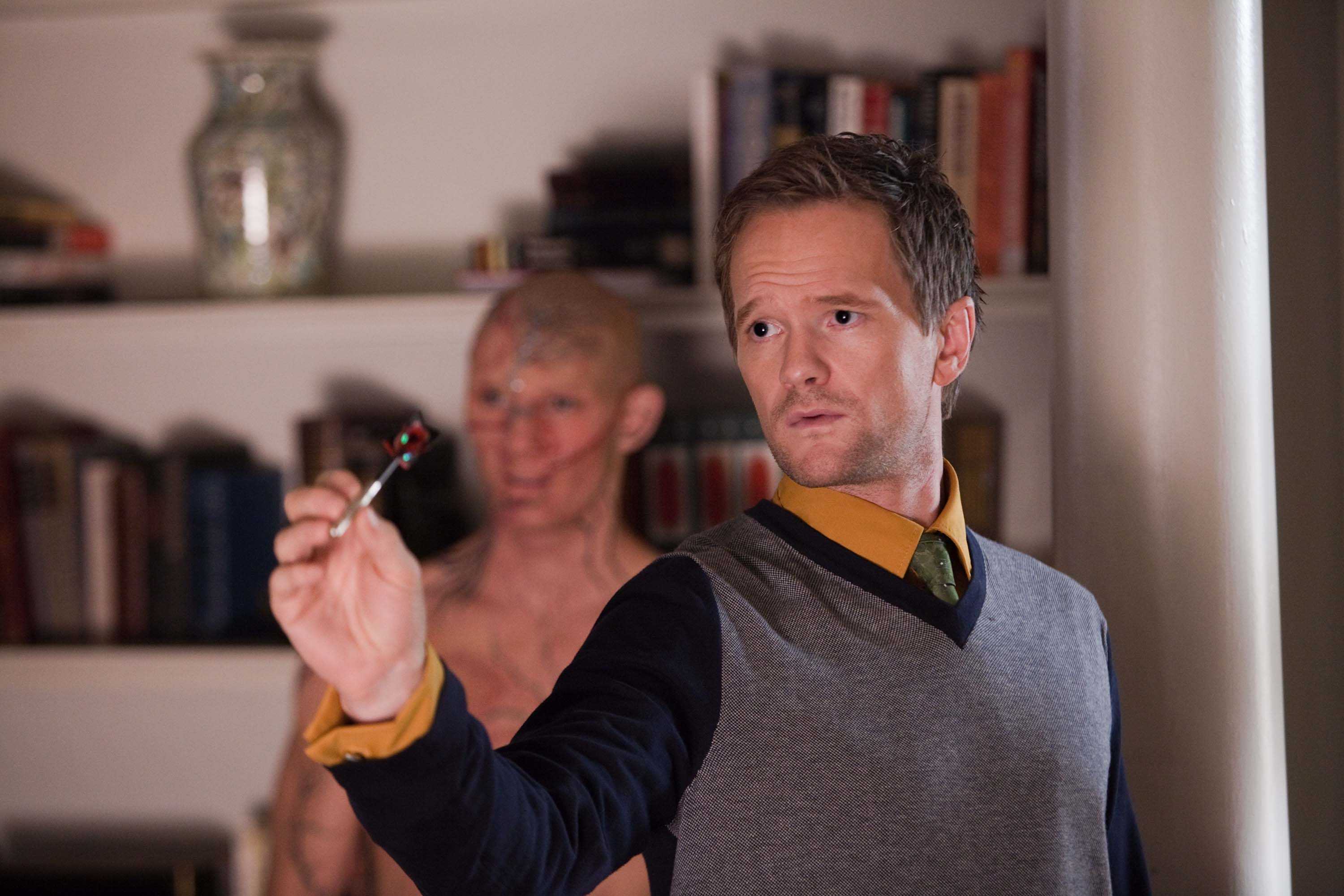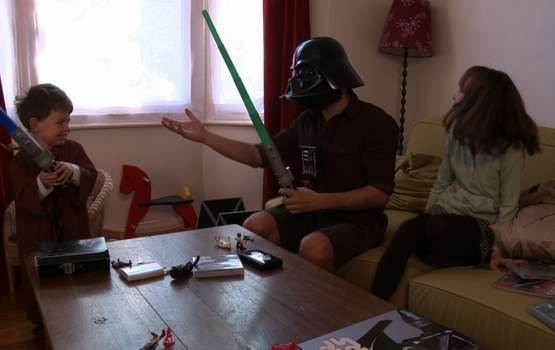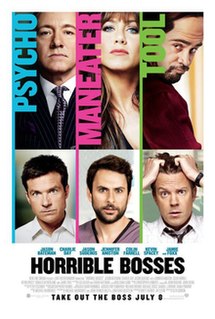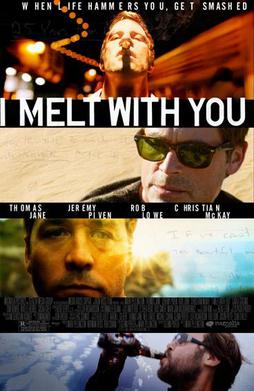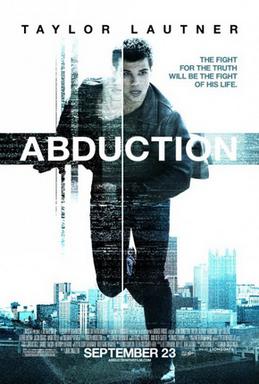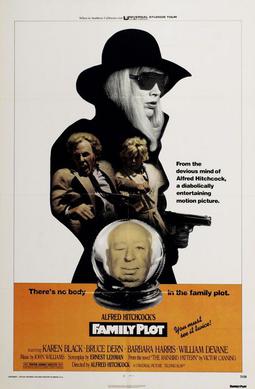THE PEOPLE VS. GEORGE LUCAS
You Don't Know The Power of the Nerd Side...
I'll go on record to say I never cared who shot first: Han Solo or Greedo. I also never dressed up for any screening of a
Star Wars prequel, though I was heavily pressured to bring along a lightsaber for
Attack of the Clones and have always regretted this lapse of judgment. I don't understand the entire subculture of the
Star Wars fans. All the things about the devotion many people have for the entire
Star Wars universe is frankly a bit beyond me.
I think the original
Star Wars films (
A New Hope, The Empire Strikes Back, and
Return of the Jedi) are as a collection, one of the greatest series ever made, pushing science-fiction/fantasy to both a deeply emotional and even intellectual level. I cannot say that for the prequels.
George Lucas is in one of the most unenviable positions of any filmmaker: a man both revered and reviled in equal measure for the same thing.
The People vs. George Lucas at first may, like the
Star Wars devotees, may be dismissed as the ramblings of angry nerds upset at Lucas for doing/not-doing things in both the
Star Wars trilogy re-releases and/or the prequels. In truth,
The People vs. George Lucas is a remarkably sober, even-handed exploration about the trials and tribulations Lucas has endured as well as inflicted on those thoroughly devoted to his stories, exploring the contradictory emotions his magnum opus unleashes on that rabid fanbase.
We start with the man himself: George Lucas, interested in making films, good films, who hit on the idea for this massive space opera about this tale that occurred a long time ago in a galaxy far, far away. The first
Star Wars film which, in a strictly technical sense, was called
Star Wars, only retroactively called
Star Wars: A New Hope, unleashed a mania that was unparalleled in the history of film.
Lucas, ever the shrewd businessman, knew there was a market for
Star Wars-related products. His films, including the
Indiana Jones series, started meeting with both critical and public acclaim. All was right with the universe.

Then, for reasons we know not, something began to grow amiss. It could have been hubris: always the great man's downfall, or a sense that everything put down or thought was perfect; it could have been a loss of creativity or it could have been simply having expectations way too high.
However, the public, and in particular the fans who had been deeply touched by all things
Star Wars, began to lose faith and hope in the works of the Creator.
Already stinging from the polarized reception of the Ewoks in
Return of the Jedi (for the record I'm in the pro-Ewok camp myself, though granted I was a child when it came out), out came the Special Editions of the
Star Wars trilogy.
The changes Lucas made to his films went from the cosmetic (adding new creatures to certain scenes), to the type that slightly altered the stories as first seen (introducing Jabba the Hutt in
A New Hope instead of
Return of the Jedi), and some were downright blasphemous (replacing Sebastian Shaw at the end of
Return of the Jedi with Hayden Christensen, who played the younger Anakin Skywalker in the prequels).
All the changes, both large and small, outraged the hardcore fanbase, who thought Lucas was basically screwing them over and did not take their devotion to the franchise into consideration.
One of the questions
The People vs. George Lucas raises is whether Lucas should have thought how the
Star Wars fans would react to these changes, whether they had some say in how the films should remain as they were released or how the filmmaker wishes them to be seen: good questions all.

From there, things only got worse between Lucas and the
Star Wars faithful. The prequels were not only disliked, but elements were introduced that rendered the previous stories almost nonsensical, most notoriously having The Force be measurable in the bloodstream.
Even more disastrous was the introduction of character Jar Jar Binks, still a source of fierce debate within the
Star Wars enclave (as if the disavowed
Star Wars Holiday Special didn't already sully the franchise). Even if the affection fans had survived
The Phantom Menace, Attack of the Clones and/or
Revenge of the Sith,
Indiana Jones & The Kingdom of the Crystal Skulls appears to have only been like waving a red flag before a bull.
Yet, despite how often George Lucas has failed to please the hard-core
Star Wars fanbase, despite how many times his work has disappointed those who can tell an AT-AT from an AT-ST, despite how, in a memorable ditty offered by two fans:
George Lucas Raped My Childhood, the fans still love him.
As for George Lucas himself, he remains mostly silent, save for a few clips. Lucas doesn't defend himself against all the minutia he's raked over the coals for, but he also has never taken any active steps against the fans making their own versions of any of the
Star Wars or
Indiana Jones films. It hints at a more nuanced and complex relationship between The Creator and His Worshipers.
The People vs. George Lucas doesn't just deal with who is the ultimate controller of a series/saga, in this case,
Star Wars: the fans or the creative force, but also delves into whether one side or the other should have ultimate control. The most damning evidence against George Lucas is, ironically enough, from Lucas himself.
Lucas is fierce in his defense of having the right to alter his films to fit his own vision of how
Star Wars or any of his films, really appear. However, in 1988, a good nine years before his own 'Special Edition' alterations, he went before Congress and said the following:
In the future, it will be even easier for old negatives to become lost and be 'replaced' by new altered negatives. This would be a great loss to our society. Our cultural history must not be allowed to be rewritten.
Yet, since speaking these words George Lucas has done the very thing he condemned and feared would happen: he took his 'old negatives' of the original
Star Wars trilogy and replaced them with 'new altered negatives'.
Moreover, for the longest time Lucas vehemently resisted bringing the originals back, almost demanding that people accept the changes to his work whether they wanted to or not. The fans and I figure some impartial critics had emotions ranging from upset to downright inflamed. Finally, Lucas either relented or was convinced to allow the unaltered versions to be released.
Whether anyone has called him on what appears to be a wild discrepancy I cannot say, but what I can say is that as time has gone by, one can't help get the impression that the more criticism Lucas gets from his fanbase for the changes he makes to the films or the story, the more intransigent and stubborn he becomes. I cannot say what is in Lucas' mind, but
The People vs. George Lucas does give people a chance to speak their minds about what they think.
Again, I have to point out the film is not a long rap session against Lucas himself. Instead, it goes into a discussion about whether the changes made to the films both visual and story-wise actually work or even make sense.
Take for example, the midi-chlorian business. All the indications from
A New Hope to
Return of the Jedi was that The Force was a vaguely mystical thing. When
The Phantom Menace was released, we found that The Force was really from midi-chlorians, which one can analyze from the bloodstream. It had the effect of rendering The Force, something that had been built up to something almost spiritual, to a mere physical entity.
How midi-chlorians become so integral to the story appears to have been a rejection of everything that had come before. Even worse, how an experienced filmmaker like Lucas failed to perceive this one simply cannot explain away as an artistic choice. He didn't appear to understand that once something had been established, introducing something that altered if not destroyed what had come before would be at least insulting to fans, at most an almost deliberate slap to the face.
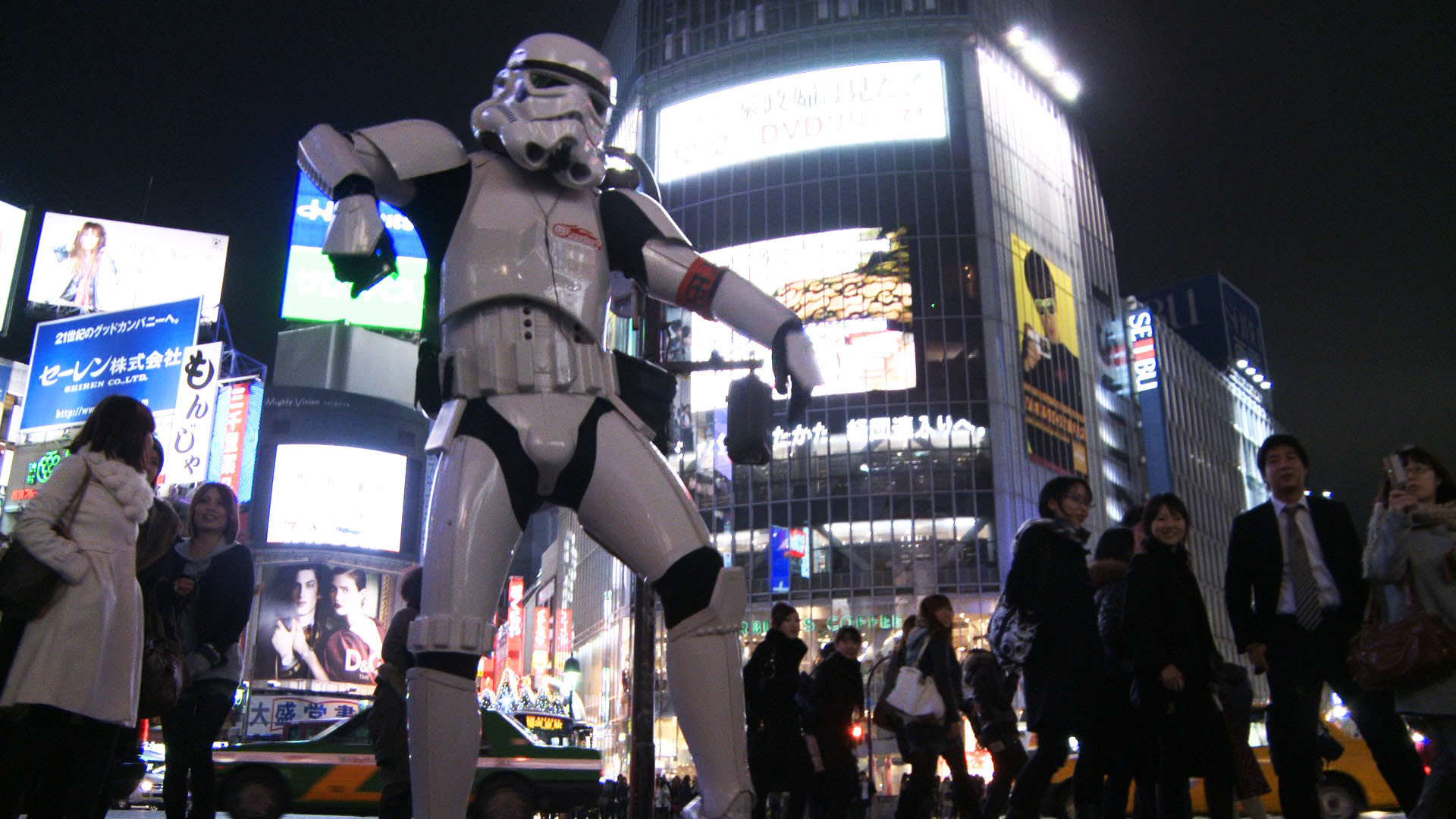
Allow me my own gripe with George Lucas, when it comes to
Star Wars. When Lucas was doing publicity for
The Phantom Menace, he was asked if we would learn who Anakin Skywalker's father was. Lucas told the interviewer that yes, indeed, we would know from whom young Annie would come from.
In comes the movie, where his mother Shmi simply says, "There was no father. He just...was" (or 'is', I don't remember). I felt insulted, and slightly perturbed; was Lucas suggesting Anakin was some sort of Virgin Birth and thus borrowing from a New Testament story?
I think George Lucas, or any filmmaker, should not react defensibly whenever his/her work (in particular such a beloved work such as
Star Wars) faces criticism for things as varied as story, acting, or characters. In the end, filmmakers are putting out a product, and if something doesn't work, people should be called on it.
If the characters in
The Phantom Menace are seen as racial stereotypes masquerading as aliens, it should be mentioned. If a particular character is almost universally despised, a filmmaker can make the case for said character, but reacting with umbrage and saying that basically everyone's wrong and that said character should be loved is really counteractive.
This is a lesson the production team of
Doctor Who should take to heart.
The People vs. George Lucas taps into the passion people feel for the series. It is about the fan's conflicting emotions with a remarkably creative writer/director whom they feel at times has betrayed them even as he gives them more of what they want. It is also a shrewd investigation of the Industrial-Marketing Complex as I call it, how the quest for merchandise has financed great works but also turned the films into almost adverts for toys.
Finally, I see
The People vs. George Lucas as a tragedy. Here was George Lucas, a man who wanted to make movies, good movies. His reputation began growing with
THX-1138, with
American Graffiti, then with
Star Wars, he becomes a titan. Then, like Orson Welles, once he created his own
Citizen Kane, he found himself inexorably tied to that.
From that sprang other things such as Industrial Light and Magic, but there was no escaping the shadow of
Star Wars for George Lucas. The prequels would, perhaps, never have matched the greatness of the original trilogy, but they appear to have been made by someone with a tin ear for dialogue and no sense of bringing life to characters. It appears that the prequels brought down not only the reputation of George Lucas, but a great deal of affection for him.
The best way to sum up
The People vs. George Lucas comes from another great filmmaker: Francis Ford Coppola.
Star Wars, in essence, brought an end to George Lucas as a filmmaker. What non-
Star Wars or
Indiana Jones-related film has Lucas made since
Star Wars' 1977 premiere? How many great movies, Coppola laments, have we been robbed of because of Lucas' ties to
Star Wars either the story or the merchandising?
To add insult to injury, so many people think they could have done it better. Could they, really? Could anyone truly put himself in Lucas' position? It is possible that George Lucas became too stubborn, up in his own Xanadu of Skywalker Ranch, convinced the world would accept whatever he brought them in the
Star Wars saga (be it midi-chlorians, Jar Jar, or the now-infamous "NO!" from the newly-created Darth Vader in
Revenge of the Sith) the fans be damned.
It is tempting to give in and go on my own George Lucas diatribe, going off about the things in the revamped
Star Wars trilogy or the prequels that I did not like. Up to a point, I did.
Once I finish a
Star Wars retrospective, I might do so, and indulge to my heart's content.
It's that passion for
Star Wars that motivates both the love and hate for Lucas, one that
The People vs. George Lucas chronicles so well.
 |
| Born 1944 |
DECISION: A-
 BEASTLY
BEASTLY I suppose Beastly could have been a bit of harmless fun, except that we get such awful performances and a weak and rushed script from writer/director Daniel Barnz. All we have to do is look at our two leads to see where Beastly went wrong.
I suppose Beastly could have been a bit of harmless fun, except that we get such awful performances and a weak and rushed script from writer/director Daniel Barnz. All we have to do is look at our two leads to see where Beastly went wrong.